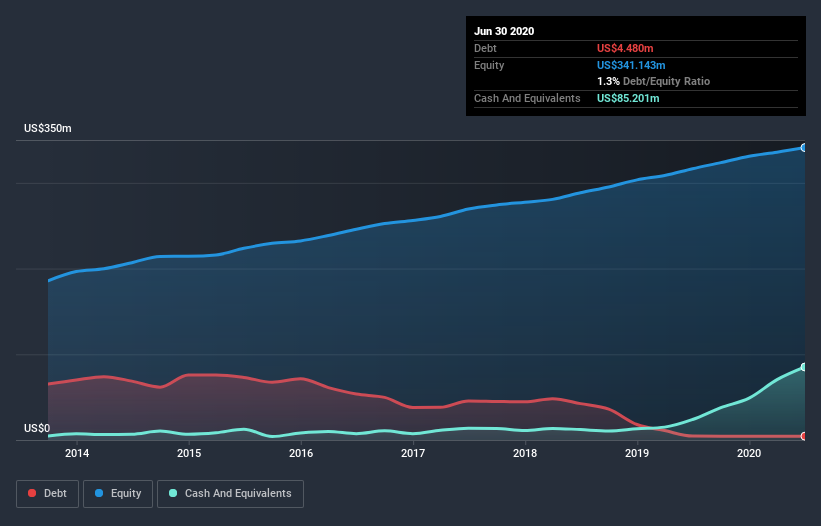Does Badger Meter (NYSE:BMI) Have A Healthy Balance Sheet?

Warren Buffett famously said, 'Volatility is far from synonymous with risk.' So it might be obvious that you need to consider debt, when you think about how risky any given stock is, because too much debt can sink a company. As with many other companies Badger Meter, Inc. (NYSE:BMI) makes use of debt. But should shareholders be worried about its use of debt?
Why Does Debt Bring Risk?
Debt assists a business until the business has trouble paying it off, either with new capital or with free cash flow. Ultimately, if the company can't fulfill its legal obligations to repay debt, shareholders could walk away with nothing. However, a more common (but still painful) scenario is that it has to raise new equity capital at a low price, thus permanently diluting shareholders. Having said that, the most common situation is where a company manages its debt reasonably well - and to its own advantage. The first step when considering a company's debt levels is to consider its cash and debt together.
See our latest analysis for Badger Meter
How Much Debt Does Badger Meter Carry?
As you can see below, Badger Meter had US$4.48m of debt, at June 2020, which is about the same as the year before. You can click the chart for greater detail. But on the other hand it also has US$85.2m in cash, leading to a US$80.7m net cash position.
How Healthy Is Badger Meter's Balance Sheet?
We can see from the most recent balance sheet that Badger Meter had liabilities of US$62.7m falling due within a year, and liabilities of US$35.7m due beyond that. On the other hand, it had cash of US$85.2m and US$54.0m worth of receivables due within a year. So it actually has US$40.8m more liquid assets than total liabilities.
This surplus suggests that Badger Meter has a conservative balance sheet, and could probably eliminate its debt without much difficulty. Succinctly put, Badger Meter boasts net cash, so it's fair to say it does not have a heavy debt load!
Also positive, Badger Meter grew its EBIT by 27% in the last year, and that should make it easier to pay down debt, going forward. When analysing debt levels, the balance sheet is the obvious place to start. But it is future earnings, more than anything, that will determine Badger Meter's ability to maintain a healthy balance sheet going forward. So if you're focused on the future you can check out this free report showing analyst profit forecasts.
Finally, while the tax-man may adore accounting profits, lenders only accept cold hard cash. While Badger Meter has net cash on its balance sheet, it's still worth taking a look at its ability to convert earnings before interest and tax (EBIT) to free cash flow, to help us understand how quickly it is building (or eroding) that cash balance. Happily for any shareholders, Badger Meter actually produced more free cash flow than EBIT over the last three years. That sort of strong cash conversion gets us as excited as the crowd when the beat drops at a Daft Punk concert.
Summing up
While we empathize with investors who find debt concerning, you should keep in mind that Badger Meter has net cash of US$80.7m, as well as more liquid assets than liabilities. The cherry on top was that in converted 116% of that EBIT to free cash flow, bringing in US$85m. So is Badger Meter's debt a risk? It doesn't seem so to us. The balance sheet is clearly the area to focus on when you are analysing debt. But ultimately, every company can contain risks that exist outside of the balance sheet. For example, we've discovered 1 warning sign for Badger Meter that you should be aware of before investing here.
Of course, if you're the type of investor who prefers buying stocks without the burden of debt, then don't hesitate to discover our exclusive list of net cash growth stocks, today.
This article by Simply Wall St is general in nature. It does not constitute a recommendation to buy or sell any stock, and does not take account of your objectives, or your financial situation. We aim to bring you long-term focused analysis driven by fundamental data. Note that our analysis may not factor in the latest price-sensitive company announcements or qualitative material. Simply Wall St has no position in any stocks mentioned.
Have feedback on this article? Concerned about the content? Get in touch with us directly. Alternatively, email editorial-team@simplywallst.com.

